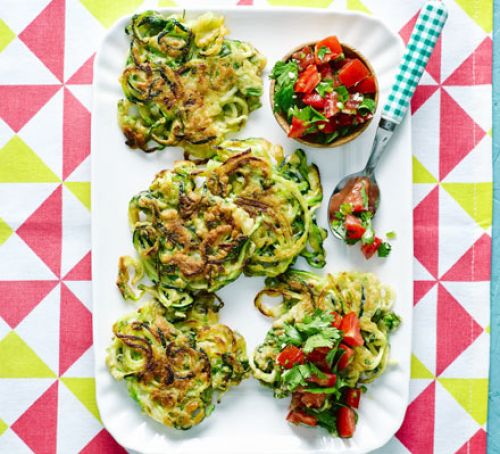Nutrition and Hydration Week – Nutritious food and hydration are an essential component of physical and mental well-being.
We can always make simple changes to improve our own and our families’ nutrition and hydration.
What is good nutrition?
‘Nutrition is the intake of food, considered in relation to the body’s dietary needs. Good nutrition – an adequate, well balanced diet combined with regular physical activity – is a cornerstone of good health. Poor nutrition can lead to reduced immunity, increased susceptibility to disease, impaired physical and mental development, and reduced productivity’ (World Health Organization).
A balanced diet is the key to ensure you are getting all your nutrients to help the body function well
A well balanced diet consists of a variety of foods from all the food groups based on The Eat Well Guide:
Carbohydrates
Bread, potato, pasta, cereals-opt for wholegrain high fibre foods to keep you fuller for longer such as wholemeal bread and pasta (good source of energy)
Dairy
Milk, cheese, plain natural yoghurt (all a good source of calcium)
Protein
Meat, chicken, eggs, fish, if you are vegetarian include beans and pulses such as lentils, chickpeas, soya, tofu (essential for growth and repair)
Fruit and vegetables
5 or more per day of a variety of fruit and vegetables-can be fresh, dried, tinned, frozen. A 150ml glass of pure fruit juice counts as one of your 5 a day (provides your vitamins and minerals)
Saturated fats and sugars
Eat these less often in small amounts
Opt for healthy fats
Olive oil, nuts, avocado, sunflower oil, rapeseed oil and omega 3 which includes oily fish (can help lower cholesterol)
If you are vegetarian your omega 3 sources would be flaxseed (linseed) oil, walnuts, soya oil and soya based foods.
Hydration
Your body requires water to function, 70% of your body is made up of water and it contributes to the maintenance of normal cognitive and physical functions. Lack of water can cause dehydration, tiredness, headaches, dizziness and constipation. 70-80% of the daily water intake should come from drinks, and the remaining 20-30% should come from food.
Water contains no calories, no sugars and is tooth friendly therefore aiming for 6-8 glasses of fluid per day is good. Herbal teas, milk, fruit juices and smoothies are alternative fluid options but can contain calories with the sugar content.
If you or your child don’t like drinking water try flavouring water with fresh mint, cucumber, slices of lemon or fruit, try cold or hot water, attractive reusable water bottles that can be refilled frequently or herbal teas. Opt for no added sugar squash, fresh fruit smoothies and fruit juices and dilute them with more water.
Balanced diet, good hydration and regular exercise can lead your way to a healthier you as well as cutting back on the sugars, processed foods, foods high in saturated fats and salt. This can also assist in reducing your risk of developing common lifestyle diseases such as diabetes, heart disease, high blood pressure and cholesterol.
Local support
Are you lacking motivation and want to get fit and healthy? Then pick up the phone and speak to our One You Merton team who can help you reach your goals. We offer a range of services that can help you get fit and feel good – pick up the phone and dial 020 8973 3545 or you can register for free on our Register Now page.
Here is a nutritious recipe for you to try:
Courgetti fritters with tomato salsa recipe
Ingredients for the salsa
- 300g pack of room temperature, ripe vine cherry tomatoes, chopped
- 1 small pack of coriander, leaves and stalks chopped (save stalks for the fritters)
- zest and juice of 1 lime
- 1 green chilli, finely chopped, deseeded, if you like
- 1 garlic clove, crushed
- 2 tbsp extra virgin olive oil3 courgettes (about 500g), ends trimmed and spiralized or peeled into thin noodles
- 3 spring onions, thinly sliced
Ingredients for the fritters
- 1 tsp ground cumin
- 100g self-raising flour
- 1 large egg, beaten
- 2 tbsp olive oil
Method
- Combine all the salsa ingredients together in a bowl and season with salt and pepper then set aside to let the flavour develop.
- In a separate large bowl, mix together the spiralized courgette, coriander stalks, lime zest, cumin and flour (you may need to cut some of the longer courgetti in half). Stir in the beaten egg and season with salt and black pepper.
- Working in 2 batches, heat half the oil in a non-stick frying pan over a medium heat. Shape the fritters with your hands then then fry for 2–3 mins on each side until golden. Serve warm with the tomato salsa.
Learn more about healthy eating on our Eat Well page.
Useful links:
Brain and spine website – Brain food
Bupa website – Health information
Article by Gopika Papiah,
Children’s Healthy Weight Advisor
View posts by category:
